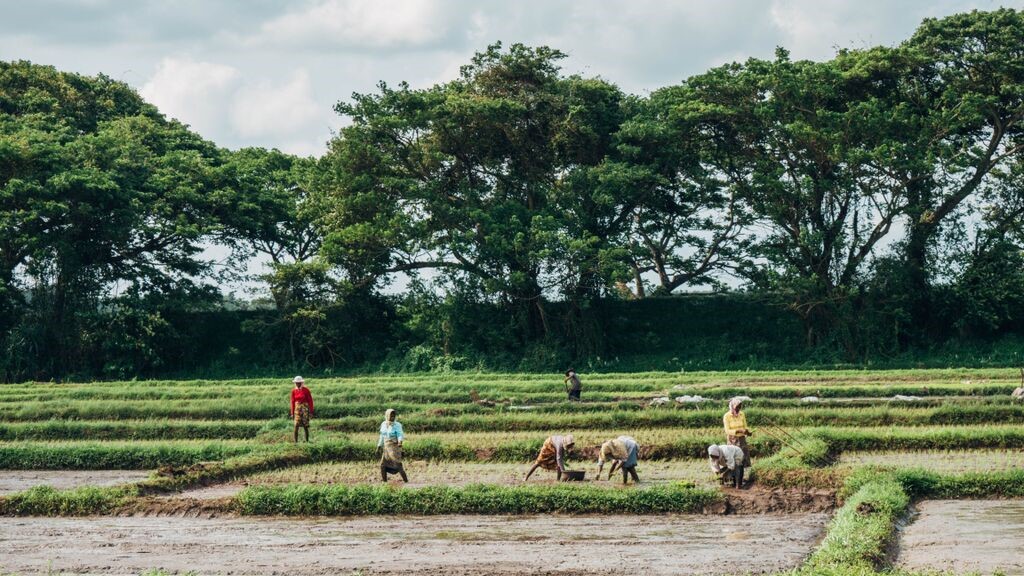Photo Courtesy of: Maia Fitzstevens
The Challenge
The Thriving Earth Exchange (TEX), in partnership with the Sarvodaya Shramadana Sangamaya Movement (Sarvodaya) of Sri Lanka, is looking for Sri Lankan and international scientists to understand the epidemic of CKDnt in Sri Lanka through community interviews, literature review and geochemical laboratory research.
Chronic kidney disease of non-traditional causes (CKDnt) is one of the major public health threats in Sri Lanka. Thirteen patients die every day from this epidemic. An estimated 100,000 patients have died since the outbreak began in the mid-1990s, while currently there are 400,000 patients. Most patients are paddy farmers from low socioeconomic backgrounds living in resettled areas. The pathology of CKDnt, tubulointerstitial nephritis, is the same as the outbreak in Central America, India, and Egypt, and research into the etiology of CKDnt has pointed to chronic dehydration and extreme heat exhaustion as a factor for affected farmers. Additionally, some linkages may exist to agrochemical contamination of reservoirs, soil depletion, malnutrition, cadmium and arsenic pollution of water, soil and food, groundwater hardness and fluoride content. More research must be conducted to examine the intricacies of these possible etiologies under the highest laboratory standards. Additionally, any conflict of interest must be identified to ensure the integrity of the conducted research.
A Scientific Partner
Sarvodaya has identified scientists to investigate this issue in an unprecedented and innovative manner, combining a comprehensive literature review, a strong connection to affected people at the ground level, and original laboratory research. A global perspective into the literature on the CKDnt problem as well as any potential effects of agrochemicals on human and environmental health is much needed. Community-based research methods will form a foundational component of this research project, as the voices of people at the ground level have valuable insight to share into the connections between conventional agriculture and health. There is also a great need to conduct geochemical research on the contamination of pesticide residues in the environment and the mobility of heavy metals (Cd, As, Pb) in paddy soils and food samples, where redox conditions likely affect the speciation of heavy metals, and thus their toxicity to humans.
[ezcol_1half]
Required Skills
- An academic background in geochemistry, hydrology, or soil science
- An interest in medical geology and the nexus of agriculture, public health, and geosciences
- An interest in generating true scientific research, unaffiliated with any industry ties
- A passion for social justice and ecologically-friendly agriculture
[/ezcol_1half] [ezcol_1half_end]
Desired Skills
- An ability to think broadly about scientific and medical issues within the context of local culture, history, politics and economics
- Capacity to listen and understand how to integrate other ways of knowing into multidisciplinary scientific research and application.
- An ability to work with different socio-economic groups, scientists with multidisciplinary expertise and practitioners.
- Experience and/or interest in working across cultures
[/ezcol_1half_end]
The selected scientist(s) will work directly with selected Sri Lankan counterparts to identify gaps in the research, partner in sample collection and processing, and engage with local communities. Access to a home institution with a Mass Spectrometer is mandatory.
Expected Outcomes
The results of the study will become part of a broad based, multisectoral, interdisciplinary effort to produce a strategic prevention plan for the nation and immediately implementable community-based solutions. Research results will contribute to an important global dialogue about this epidemic.






